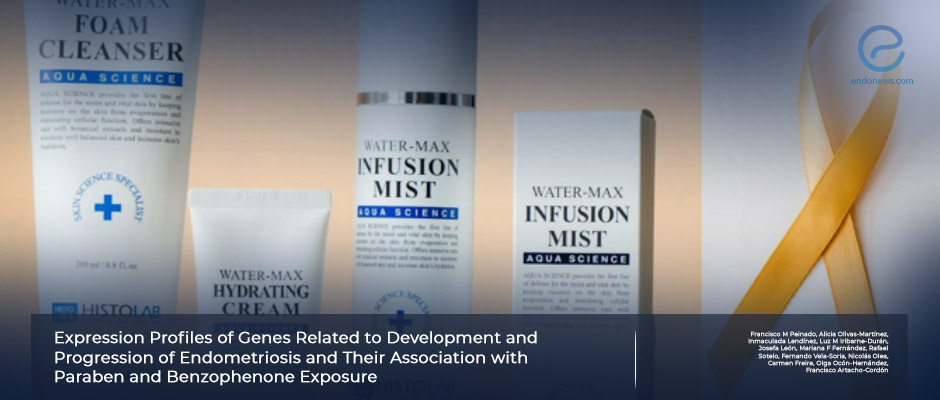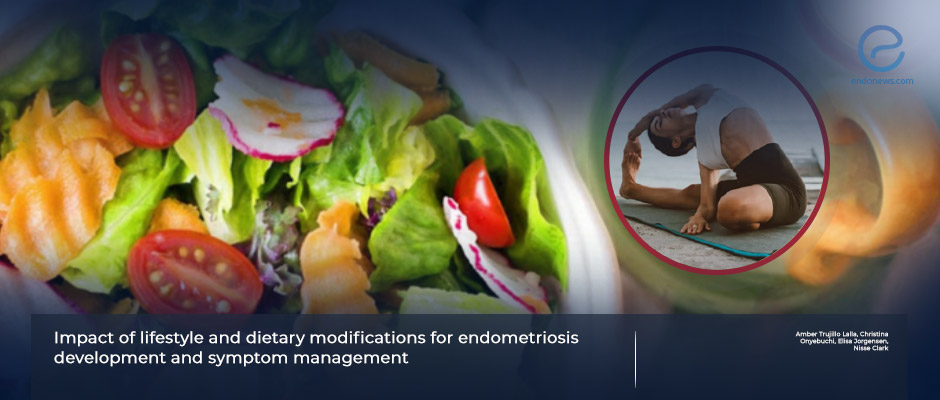Study Sheds Light on How Parabens and Benzophenones May Be Linked to Endometriosis
Exposure to parabens and benzophenones may be linked to the altered expression profile of genes involved in cellular pathways associated with the development of endometriosis, according to a new study published in the International Journal of Molecular Sciences. “Given the…
Key Points Lay SummaryLifestyle and Environmental Factors in Endometriosis: Current Insights and Future Directions
Endometriosis-associated symptoms such as dysmenorrhea, dyspareunia, chronic pelvic pain have an effect to diminish the quality of life. The physical and mental quality of life of these women is adversely affected. There are several studies evaluating the quality of life…
Key Points Lay SummaryEndometriosis in Asia
Academicians from the University of Philippines led by Dr. Velarde have published a recent review on endometriosis and Asian women in the scientific periodical “Endocrine Connections”. The endometriosis prevalence rate is variable among ethnicities, and Asian women including Filipinos, Indians, Japanese,…
Key Points Lay SummaryHazardous substances in pollution and relationship with endometriosis.
Vallée and colleguages. from the Department of Epidemiology and Public Health of Foch Hospital, France, recently published a narrative review about environmental pollution and its association with endometriosis in BJOG. They used the existing English literature to discuss the association…
Key Points Lay SummaryEnvironmental factors play a role in the development of endometriosis
The proposed mechanisms underlying the development of endometriosis may be classified into three groups: in-situ theory, implantation theories, and induction theories. Genetic, hormonal, environmental, and lifestyle-related factors are also involved as no mechanism is solely responsible for endometriosis development. Although there are…
Key Points Lay SummaryHow to unveil the discrepancy regarding the effect of chemicals on the etiology of endometriosis
Kristen Upson from Michigan State University published a review article evaluating research papers on environmental factors effective in endometriosis from an epidemiological perspective in "Current Epidemiology Reports". Endometriosis is a multifactorial disease with anatomical, hormonal, immunological, estrogenic, genetic, epigenetic, and…
Key Points Lay SummaryEndocrine-disrupting chemicals – yet another environmental factor associated with endometriosis?
This study by Wen et al., published in Gynecological Endocrinology, analyzed evidence connecting endocrine-disrupting chemicals (EDCs) to the incidence of endometriosis in a collection of 30 previously published studies. Results show that exposure to many EDC's are linked to the…
Key Points Lay Summary
 By Özge Özkaya
By Özge Özkaya

 By Hale Goksever Celik
By Hale Goksever Celik

 By Nasuhi Engin Aydin
By Nasuhi Engin Aydin

 By Selma Oransay
By Selma Oransay



 By Demet Candaş Green
By Demet Candaş Green